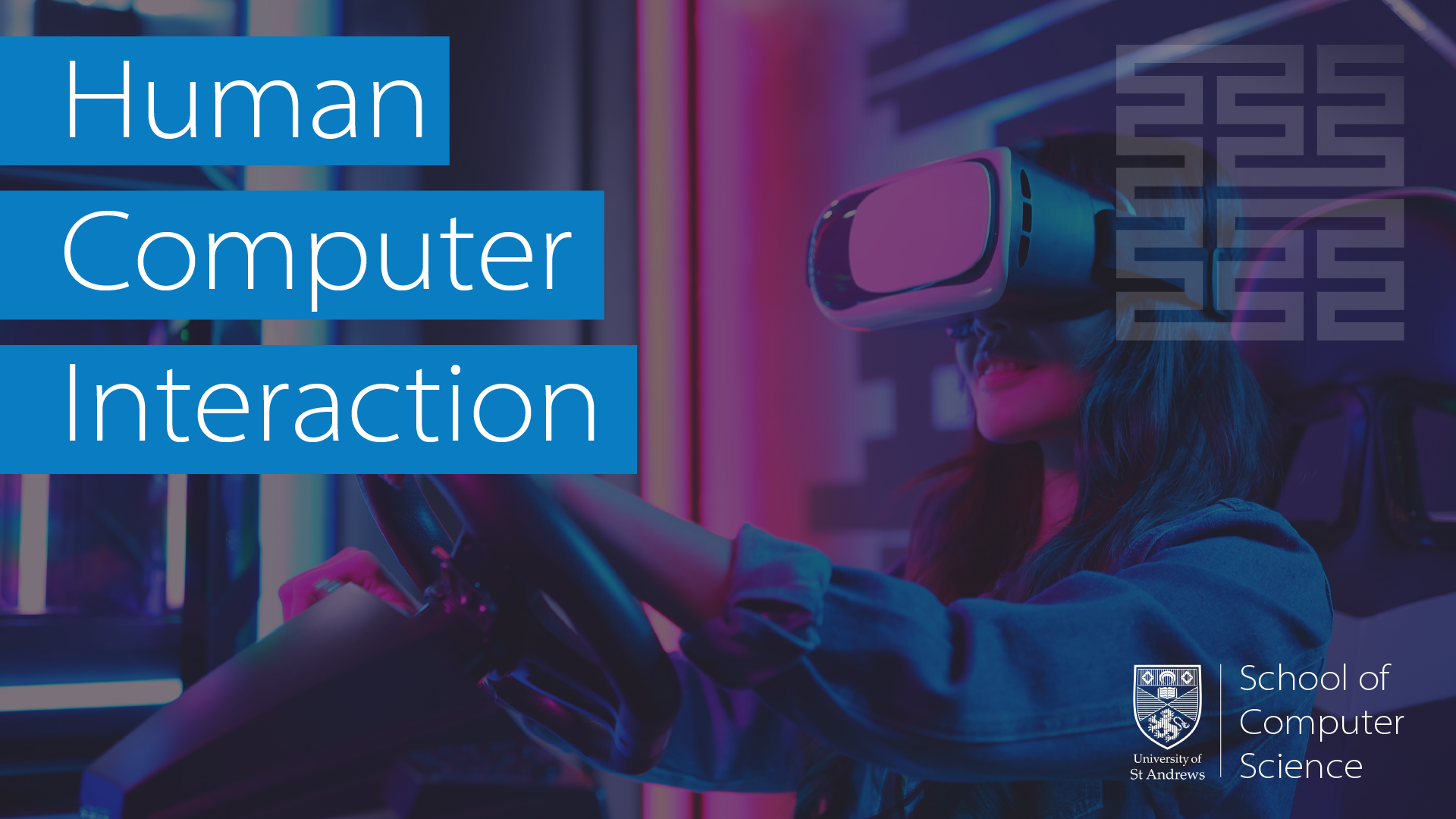Human Computer Interaction
What we do
We look at the interaction between humans (the users) and computers. We aim to improve the design of technology to make it more usable, useful and accessible. As well as our team in Computer Science, we work with colleagues from psychology, sociology, art and design, and engineering.
Theme Lead

Loraine Clarke

Application Areas
- UX and UI for hardware and software product design
- Smart sensors and smart home technology
- Theatre, museum and public exhibitions
- Health care
- At-home medical testing
- Design for high-stress environments e.g. air traffic control and power station control rooms
- Data visualisation and graphic design for Public education and information
- Travel: personal and public transport
Research Topics
- AR/VR technology
- Information/Data Visualisation
- New Interaction techniques
- Collaborative working
- Digital Humanities
- Intelligent Interactive Systems
- Pervasive and Ubiquitous Computing
- User-centred design techniques
- Eye-tracking
- Data Analysis
- Privacy
Our Featured Projects this Year
-
OLSA: an Online Learning Support Application
Although having several tabs or applications open concurrently to take notes, manage tasks, and locate resources may be necessary for many students, it is not conducive to effective learning. The present project aims to develop an Online Learning Support Application, one which offers a collection of productivity and learning tools with a simple user interface…
-
Our Friends Electric
Emerging technologies-such as the voice enabled internet-present many opportunities and challenges for research and society as a whole. Advocating for better, healthier implementations of these technologies will require us to communicate abstract values, such as trust, to an audience that ranges from the general public to technologists to policymakers. In this research, we use a…
-
Co-designing alternative narratives for decentralised digital futures with rural communities in Karnataka, India
Decentralising Digital was a 2 year project involving design researchers from universities across the UK, Quicksand – a design research studio from India, and a range of community partners working with rural farmers and communities in Karnataka, India. The project, focused on co-create future alternative narratives that explore how powerful developments in emerging technologies such…
-
Meaningful Interactions using Non-Conventional Hardware Options
A project for the “Interactive Software and Hardware” module which required students to creatively work with hardware and software to create an interactive exhibit. This exhibit demonstrates a prototype system in which users can engage in short pattern-recognition and memorisation-based activities through non-conventional hardware interfaces. These interfaces include: a motion capture camera (Kinect), a microcontroller…
-
Language App for Intermediate Chinese
The majority of apps out there for language learning are aimed at beginners. It follows the same textbook structure, boring grammar and none of the content seems applicable to you. It’s time for a new era of language learning, where it’s fun and where we can choose our own course! This language app lets you…
-
Not So “Smart” Phones
Modern smartphones offer endless features, applications and upgrades, often leading to heightened distractions. “Minimalist phones” deliberately restrict features to just essential utilities like calls and maps. This research analyses user perceptions of such phones focused solely on fundamentals. By limiting apps and notifications through intentional design compromises, the goal is to encourage presence, focus, and…
-
What Does the University of the Future Look Like?
Welcome to the St Andrews class of 2044! Based on your recent search history, we think you’d benefit from a talk given by one of our ambassadors. Like you, participants will also be from communities who opted out of technology for their children. We see you’ve been exploring what our golf courses were like before…
-
Sketching in Human Computer Interaction
Sketching is a universal, accessible and quick medium for representation, brainstorming, communicating ideas, and can aid understanding. However, sketching can also be a tool for making sense of complex topics, translating research, and even scoping the future of technology. Whilst seen as a ‘soft skill’ in many disciplines, sketching is in its renaissance, even challenging…
-
Reducing the Digital Exclusion of Older Adults with a Focus on the Transport Domain
In this age of rapid digitalisation, heightened by the Covid-19 pandemic, there is a digital divide between older adults and wider society. Increasingly, accessing essential services requires use of digital technology. Often this excludes older adults, many of whom do not have the experience and confidence to fully engage in the digital world. Transport is…